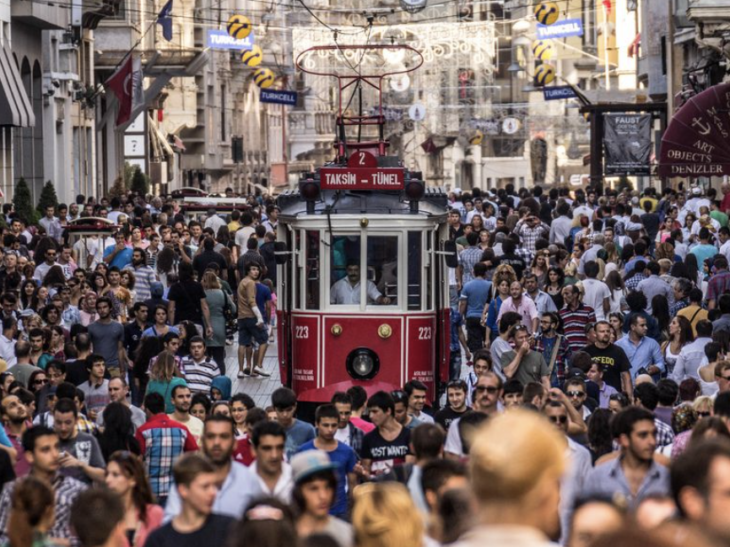TUIK: Majority in Turkey unable to afford week-long holiday
 tourism
tourism
While Turkey’s wealthiest top 20 percent earned nearly half of the country’s total income in 2023, an annual week-long holiday was beyond reach for more than half of households, recent figures by the state-run Turkish Statistical Institute (TÜİK) indicated.
In 2023, Turkey’s wealthiest 20% accounted for 49.8% of total income, up from 48% in 2022, according to the Income Distribution Statistics published by the state-run Turkish Statistical Institute (TÜİK) on Jan. 28.
Meanwhile, the share of total income for the poorest 20% decreased from 6% to 5.9% during the same period.
The Gini coefficient, a measure of income inequality, rose to 0.433, an increase of 0.018 points from 2022, indicating growing inequality.
TÜİK’s statistics show that the mean annual household disposable income, measured in Turkish liras, increased to 167.983 liras—a 70.7% rise from the previous year.
The mean annual equivalent household disposable income went up by 72.3% compared to 2022, from 48.642 liras to 83.808 liras in 2023.
However, these spikes occurred amidst heavy lira depreciation and sky-high inflation. With the annual inflation rate set for 2023 at 64.77%, according to TÜİK numbers, and 127,21% by the independent inflation group ENAG.
Meat considered a luxury for many
As the rich got richer, Turkey’s at-risk-of-poverty-rate decreased by 0.5 points to 13.9% in 2023 when the poverty threshold was set at 50% of the median equivalent household disposable income, according to the Poverty and Living Conditions Statistics published by TÜİK on Jan. 30.
However, when the poverty threshold was set at 60% of the median equivalent household disposable income, the at-risk-of-poverty-rate grew by 0.1 points in the last year, reaching 21.7%.
Furthermore, the official figures indicate that 58% of the population had installments or loans in 2023, a 1.4 point drop compared to 2022. This excludes mortgages and housing costs. These payments were considered not burdensome by 5.7%, while they were considered a significant burden for 14.9%.
Housing costs have become gradually burdensome in 2023, with 66.5% indicating that this has become a slight burden, an increase of 8.8 points compared to 2022.
A one-week annual holiday away from home was within the financial grasp of 58.8% of households, while 39.2% reported they couldn’t afford a meal containing meat, chicken, or fish every other day.
Additionally, 31.8% indicated they couldn’t handle unexpected financial expenses, and 19.5% couldn’t afford to heat their homes adequately.
duvarenglish.com




